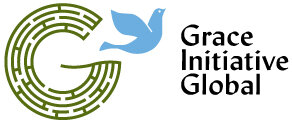United Nations Diplomats Learn About Sustainability at Retreat in Manchester
Editor’s note: This article by Edward Damon was first published in the Bennington Banner on Oct. 2, 2016, and later the Manchester Journal, Brattleboro Reformer, and VT Digger.
MANCHESTER — With the green mountains, farmland and local destinations and cultural institutions serving as a backdrop, 45 foreign diplomats spent two days this weekend learning about sustainability efforts in Vermont.
Top world leaders from 24 countries visited Northshire communities for the first United Nations retreat in the state. According to organizers, the retreat aimed to show diplomats the practices that support Vermont’s environment, businesses and people.
The diplomats represented the Group of 77 (G77). The collection of 134 developing nations is the largest intergovernmental group within the U.N.
Virachai Plasai, chairman for the G77 and Thailand’s permanent representative to the U.N., described the visit as “an eye opener.” Plasai, in an interview at Hildene, the Lincoln Family Home, said he and others viewed the retreat as an opportunity to see a sustainable way of life. And what they saw will guide the countries’ plans of how to meet global “Sustainable Development Goals” the U.N. adopted one year ago.
Plasai spoke of similarities between the environmentally conscious way of thinking that many Vermonters subscribe to and the ideas described in Thailand’s “sufficiency economy philosophy.”
The two-day visit, called a “Retreat on Sustainable and Resilient Communities,” was cosponsored by the Grace Initiative, a Vermont-based nonprofit organization.
It was founded by Yvonne Lodico, who previously worked for the U.N. for 15 years.
Lodico, of Dorset, said the retreat provided an opportunity for G77 delegates to gain insight and examples of strategies for sustainable communities. Lodico cited Vermont’s reputation for sustainability in agriculture and energy, and community-based efforts.“This is important for trust building, and for peaceful and inclusive societies,” she said.
G77 is named for the initial 77 member states. Today, its 134 members include Afghanistan, Brazil, Kenya, Palestine and Vietnam, all of which were represented at the retreat.
Diplomats departed the U.N. in New York City on Friday.
They toured the Burr and Burton Academy campus and were served a special dinner at Stratton Mountain Resort, where they were also addressed by Vermont Agency of Natural Resources Secretary Deb Markowitz.
Stops on Saturday included Merck Forest in Rupert, the Marble House Project in Dorset for lunch and a panel discussion, and then Hildene, the Lincoln family home.
Along the way, they heard from state officials and representatives about Vermont policies and practices that support sustainable development. The U.N. adopted the 2030 Agenda for Sustainable Development Goals last September. It sets a list of 17 goals “to end poverty, protect the planet, and ensure prosperity for all.”
The goals — which include achieving zero hunger, providing clean water and sanitation, action to address climate change, and responsible consumption and production — apply to both developed and developing countries.
Plasai said the sufficiency economy philosophy was proposed by Thailand’s King Bhumibol Adulyadej, after the 1997 Asian financial crisis.
The philosophy stresses three principles, he said: Moderation, reasonableness and self-immunity.
“We think this model can be one of the ways for achieving goals of the agenda,” he said.
Meeting the goals and targets could mean merging the philosophy of Vermonters and the philosophy promoted by the Thai king, he said.
“All of this, no matter what we call it, is being practiced in this state,” he said.
